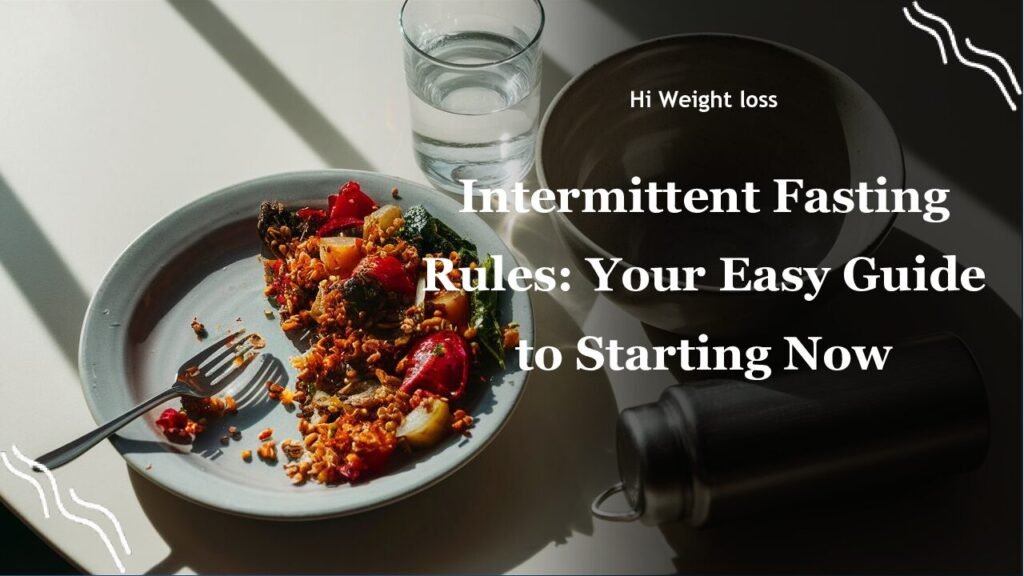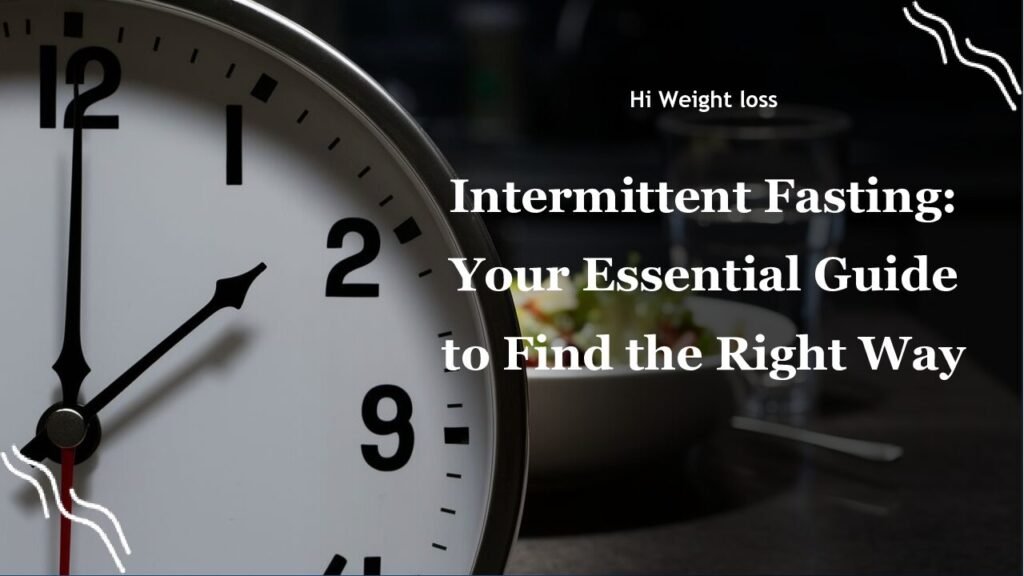“`
Ever wondered if those precious hours of sleep contribute to your fasting goals? It’s a common question for anyone exploring intermittent fasting, and the answer might surprise you. You’re in the right place if you’ve found yourself asking this very question! Let’s dive into how sleep fits into the fasting window and explore some interesting connections between sleep and fasting. This article will clear up any confusion and help you maximize your fasting efforts, even when you’re dreaming.
Does Sleeping Count as Fasting?
Absolutely! When you’re not consuming any food or drinks, you are indeed in a fasted state. This includes the time you spend sleeping. It’s a simple concept, but it’s crucial to understand, especially when you’re practicing intermittent fasting. Imagine your body like a car. When you’re sleeping and not consuming fuel, you’re letting it rest and recharge.
The Intermittent Fasting Window: Sleep Included
The core principle of intermittent fasting is cycling between periods of eating and voluntary fasting. The fasting period isn’t just the hours you’re awake; it’s a full, continuous block of time where you don’t eat or drink anything with calories. So, yes, all those hours spent asleep count towards your total fasting time. For instance, if you finish your last meal at 8 PM and have your next meal at 10 AM, your entire 14-hour stretch, including the night’s sleep, is your fasting window.
I remember when I first started intermittent fasting; I was confused about this. I thought only my waking hours counted! It wasn’t until I read a blog from Autumn Elle Nutrition that I understood that sleep is a crucial and very helpful part of fasting. This made me realize that I didn’t have to endure long hours of conscious hunger, as the sleeping hours were doing their part.
Fasting and the Science of Sleep
Beyond simply contributing to the fasting hours, there’s actually a fascinating connection between fasting and sleep quality. Studies have explored how short-term fasting, like a week of modified fasting, may lead to improvements in sleep quality and daytime performance. This suggests that your body’s physiological response to fasting includes enhanced sleep patterns.
I once heard a friend, who struggled with sleep, mention that she started intermittent fasting and noticed an improvement in her sleep. She used to toss and turn in bed, waking up several times, but now, her sleep had become deeper and more restful. I was very interested in her experience, because this shows that fasting has a surprising effect on the body, even on sleep quality.
Does Intermittent Fasting Affect Sleep Quality?
The question of whether intermittent fasting affects sleep quality is a common one, and the answer seems to lean toward positive outcomes. While more research is always needed, the existing data suggests that if your body adapts to the new eating pattern, your sleep might benefit from the fasting regimen. You might find yourself falling asleep easier and experiencing less restless nights.
It’s also important to note that any changes you experience will probably vary from person to person, but the relationship between fasting and sleep is intriguing. For those looking to improve their sleep, intermittent fasting could be an additional tool to explore. It’s not just about weight loss; it’s also about overall well-being, including restorative sleep.
How Does Fasting Impact REM Sleep?
REM (Rapid Eye Movement) sleep is vital for cognitive function and memory consolidation. You might be wondering how fasting impacts this crucial phase of sleep. The research in this area is still developing, but some studies suggest that fasting can indeed influence REM sleep. The body’s response to food restriction may affect the sleep-wake cycle and, subsequently, your REM sleep patterns.
I once stumbled upon a discussion forum where people shared their experiences of having vivid dreams during fasting periods, which got me curious. These people’s experiences suggest a possible link between fasting and REM sleep, and that the metabolic changes brought about by fasting could be altering sleep patterns and dream intensity.

Can Fasting Improve Circadian Rhythm?
Your circadian rhythm is your body’s internal clock, which regulates the sleep-wake cycle. There is growing evidence that fasting can help improve your circadian rhythm. By restricting your eating window, you’re essentially giving your digestive system a regular rest, which can help regulate hormones that affect sleep and wakefulness. It can be a powerful way to reset your body’s natural timing, and I know so many people who swear by it!
One of my relatives, who was previously working on a very irregular schedule, mentioned that the rigid feeding time that he adopted as part of his intermittent fasting has helped him to sleep more easily and regularly. The fixed feeding time has helped him to reset his body clock, thus, the results he has seen are that he sleeps better than before, and this really inspired me to try intermittent fasting, as an aid to a healthy lifestyle.
Practical Tips for Fasting and Sleep
If you’re planning to integrate fasting into your routine, here are some practical tips to ensure that your sleep is well managed and you can take full advantage of the benefits:
- Maintain a Consistent Schedule: Try to eat and fast at the same time each day to help regulate your circadian rhythm.
- Start Slow: Don’t drastically change your eating habits overnight. Gradually increase your fasting window over time.
- Listen to Your Body: If you experience difficulty sleeping, adjust your fasting periods accordingly.
- Stay Hydrated: Drink plenty of water throughout the day, even during your fasting period.
- Eat Mindfully: During your eating windows, choose nutritious, whole foods.
By adopting these simple practices, you can increase the effectiveness of your intermittent fasting regimen and optimize your sleep quality.
| Fasting Type | Sleep Quality Impact | Circadian Rhythm Impact |
|---|---|---|
| Intermittent Fasting | Potential improvement in sleep depth and duration for some individuals. | May help regulate the body’s internal clock, especially if eating times are consistent. |
| Modified Fasting | Short-term studies have shown that sleep can improve. | Potentially improves as the body adjusts to a new routine. |
| Extended Fasting | May cause sleep disturbances in some individuals, more research needed | May have mixed effects; more data is required. |
Conclusion
So, does sleeping count as fasting? Yes, it absolutely does. Remember, fasting includes any time your body is not actively digesting food, and this extends to your sleeping hours. Intermittent fasting goes beyond just weight management; it’s also about creating a healthier lifestyle with better sleep quality. As we have explored, studies show that there’s a connection between short-term fasting and improved sleep, which is an amazing advantage. If you are planning to start fasting, always keep your body in mind, and make adjustments as needed, and don’t forget to consult with your doctor. By understanding the science behind fasting and sleep, you can optimize your routine and potentially enjoy not only a leaner physique but also more restful nights. Now, how about sharing this article with someone who’s curious about the world of intermittent fasting, or give intermittent fasting a try yourself!
FAQ
Can I drink water during my fasting period, including when I am asleep?
Yes, you can and should drink water during your entire fasting period, including when you are asleep. Staying hydrated is important even when you are not eating. It is important to be hydrated, because staying hydrated is not only good for your health, but also can improve your sleep quality.
Will fasting make it hard for me to fall asleep?
For some, there might be a short period of adjustment while the body gets used to the new fasting schedule. However, many people find that intermittent fasting can actually improve their sleep quality over time.
Does the time I sleep matter to the intermittent fasting method?
No, it doesn’t matter, your body will still be in a fasted state whether you are awake or asleep during the time period that you are not eating. Whether you sleep in the daytime or at night, it doesn’t matter, the sleeping time is included in the fasting time period. For example, as Autumn Elle Nutrition points out, the whole time is counted as fasting when you sleep.
How does a modified fast affect sleep patterns?
Studies, like the one published on PubMed, suggest that short-term modified fasting can improve sleep quality and daytime performance. It is because of the changes in hormones when your body has been fasting, your sleep pattern could also change.
Can intermittent fasting influence my REM sleep cycle?
While research in this area is ongoing, some studies suggest a connection between fasting and REM sleep patterns. It is possible to experience a change in dream intensity and the quality of your sleep when you are fasting. More research is needed, but the connection is there and there is interest in this area.
“`



